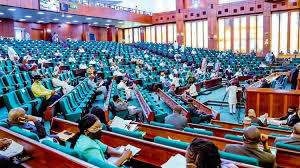By Joshua Egbodo
Abuja
House of Representatives has passed, for second reading, a bill seeking to set out conditions to guide state governments which intended to rehabilitate federal roads, with the intent to get reimbursed.
Many members, who expressed concerns that the federal government was” currently indebted to states to the tune of over N400 billion,” argued that there were no laid down regulations to guide the execution of such projects, thereby leading to abuse of standards and procedures.
Sponsor of the bill, Hon. Rimande Shawulu, said yesterday that while it was not bad for the states to intervene, “especially in the face of dwindling resources of the federal government, some of the works done do not meet acceptable standards.”
He noted that a huge debt burden had been incurred by the federal government, “even when the state governments do not follow the due process of having the funds for such roads rehabilitation go through appropriations by their respective state parliaments.”
He said the bill was aimed at, among other things, providing a legal framework for the states to embark on such projects, ensure transparency, as well as create room for legislative input for proper oversight purposes, and to also ensure that the acceptable standards are complied with.
“Some key procedures as suggested in the proposed legislation were that the status of the road at the point of the planned rehabilitation must be known to both parties, why the execution is necessary, the process of reimbursement, and the procedure for conflict resolution, should any arise, among others,” he said.
Speaking in support of the bill, Minority Leader, Hon. Leo Ogor, said there need to have clear laid down procedures for any state to take up the reconstruction of a federal government’s road, and that in doing so, “the cost implication must be known from day one in order to prevent the over bloated bills.”
Spokesman of the House, Abdulrazak Namdas, and several others who also backed the bill, agreed that the proposal would be workable, especially with the existence of resident engineers across the country, which could serve as liaisons for the federal government.



